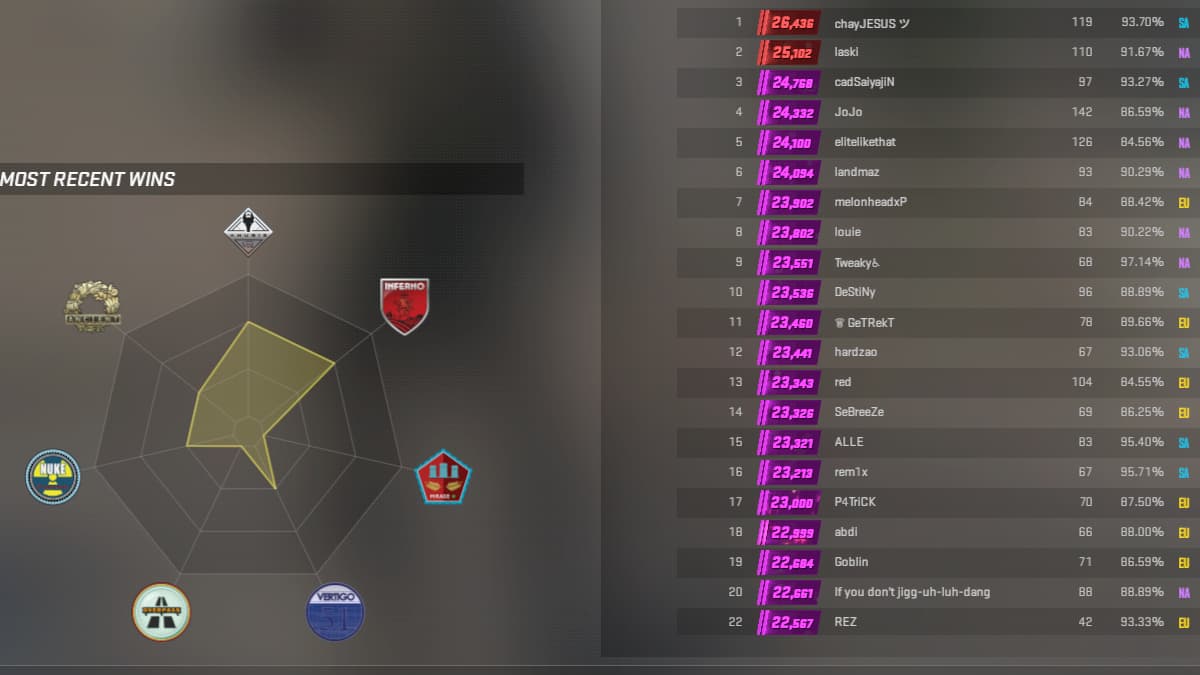Empowering Relationships: BVSM Marriage Services
Explore expert advice and support for successful marriages.
Leveling Up CS2 Matchmaking: Why Your Skill Rank Might Be a Misleading Mirage
Uncover the truth behind CS2 matchmaking! Discover why your skill rank could be a misleading mirage and how to truly level up your game.
Understanding the Skill Rank System in CS2: What It Really Measures
The Skill Rank System in CS2 is a vital component that determines a player's competitive standing within the game. Unlike casual play, this system adopts a rigorous approach to evaluate a player's performance based on multiple factors. Primarily, it assesses win rates, individual performance metrics, and consistency in match outcomes, which together form a comprehensive picture of a player's skill level. For instance, players achieve higher ranks by demonstrating not only skillful gameplay but also the ability to collaborate effectively with teammates, making teamwork an essential aspect of gaining ranks.
Moreover, the Skill Rank System employs a matchmaking algorithm that ensures players face opponents of similar skill levels, thereby enhancing the overall experience and competitive balance in CS2. This means that a higher rank indicates a more experienced player who has mastered various gameplay strategies and mechanics. It's crucial for players aspiring to improve their ranks to focus on honing their skills, learning from past matches, and adopting a growth mindset. In essence, understanding the Skill Rank System not only helps players navigate their competitive journey but also encourages a deeper engagement with the intricacies of CS2.

Counter-Strike is a highly popular first-person shooter game where players engage in team-based combat. One aspect that many players enjoy is customizing their weapons, including mp9 skins, to enhance their gameplay experience. The game's competitive nature, tactical depth, and vibrant community have made it a staple in the esports scene.
The Impact of Team Dynamics on Your Matchmaking Experience
When it comes to matchmaking, understanding team dynamics is crucial for creating successful connections. Team dynamics refer to the interpersonal relationships and interactions among team members, which can profoundly influence the matchmaking experience. Whether you're participating in a competitive event or seeking a partner for a collaborative project, recognizing how different personalities, communication styles, and roles within a team can impact your experience is essential. A harmonious team environment fosters trust and openness, making it easier for individuals to engage meaningfully.
Moreover, the impact of team dynamics extends beyond mere interactions. For instance, teams that exhibit strong collaboration and clear communication often see improved outcomes in matchmaking scenarios. This is because, when members feel comfortable sharing their ideas and concerns, it promotes a more inclusive atmosphere. To enhance your matchmaking experience, consider assessing your team's dynamics:
- Identify dominant personalities that may influence group interactions.
- Encourage open dialogue to address potential conflicts.
- Foster a culture of mutual support and respect.
Is Your Rank Holding You Back? Common Misconceptions in CS2 Matchmaking
In the continuously evolving world of CS2 matchmaking, many players often find themselves plagued by the question, 'Is my rank holding me back?' While it's easy to blame rank as a limiting factor, there are several common misconceptions that can mislead players. For instance, assuming that a higher rank automatically equates to better skills is a significant oversight. In reality, rank can be influenced by various factors, including individual performance, teamwork, and even luck. Understanding these nuances is essential for players seeking to improve their gameplay experience.
Another prevalent myth is that your rank solely dictates your potential to win matches or climb the ladder. Many fail to recognize that matchmaking also considers factors like latency, map preferences, and even the synergy between teammates. By focusing solely on rank, players may overlook vital aspects of gameplay, such as strategic positioning or communication skills, which can be far more impactful in determining the outcome of a match. Therefore, it’s crucial to shift your mindset from solely contemplating rank to embracing a holistic approach to improving your game.